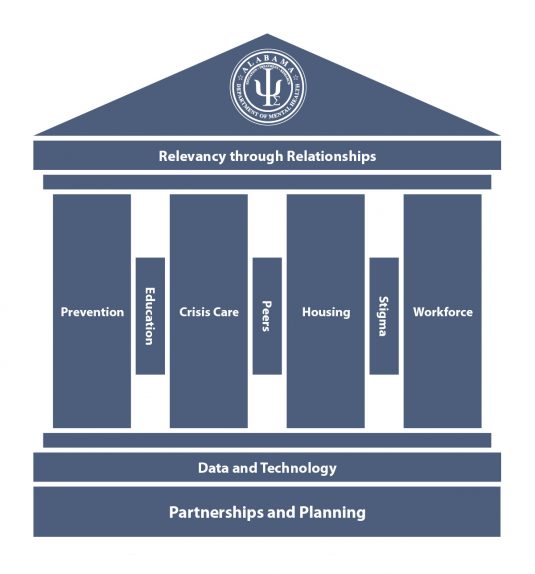
The Pillars of ADMH represent the goal of Relevancy through Relationships supported by innovative and crucial programs, grounded by a strong foundation.
Prevention & Early Intervention:
School-based Mental Health Services, Infant and Early Childhood Mental Health, Infant Mortality Task Force are evidence-based programs. The Stepping Up Alabama Initiative will reduce the number of people in jails and emergency departments, routing them to the appropriate places for care.
Education:
Mental Health First Aid, Crisis Intervention Training, and public awareness campaigns such as Stop Judging, Start Healing, can increase knowledge and lead to proactive responses to mental health needs.
Crisis Care:
Establishing crisis care in the right place, at the right time, by the right person, for mental and physical evaluation, stabilization and referral is a crucial part of the system of care.
Peers:
Training and use of peer-certified specialists provide support and recovery to the individuals we serve within core ADMH programs.
Housing:
A stable home is a basic component of mental health and wellness and an essential element of primary care.
Stigma:
This creates barriers to funding and prevents people from obtaining early care. Individuals in recovery from mental illness and substance use and those with intellectual disabilities are successful in being part of their community and Alabama’s workforce.
Workforce Development:
Alabama has a major challenge in attracting a mental health workforce and retaining direct service providers who work with the individuals we serve. Without all levels of the healthcare team, it is impossible to retain and recruit or have a high-quality, effective, and consistent mental health system.
